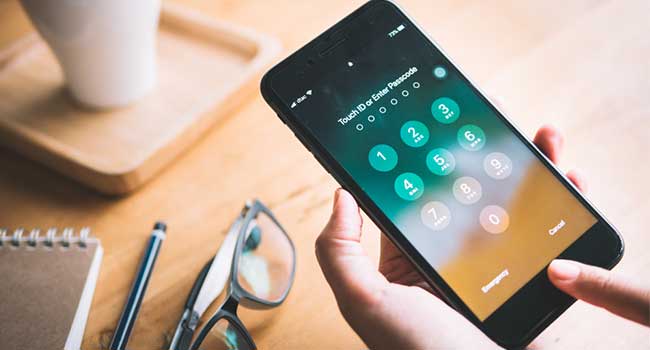
Apple Enforces User Data Security with New Updates
Apple has “you control your data" for a while now, but with these new updates, the data is almost completely the consumers’.
- By Kaitlyn DeHaven
- Jun 06, 2019
Apple announced eight security updates involving the Apple Watch, Apple maps and location, voice control, and more that will significantly increase the average Apple user’s security. The opening keynote speaker at Monday’s Worldwide Developer Conference showed how these new features will directly influence Apple users, giving them security that Apple competitors like Google and Facebook can't offer.
In addition to the new watchOS health features for the Apple Watch, Apple emphasized that all data the watch collects will stay on the device or in the user’s control. Beside the watch, the data can either be stored on the user’s iPhone or in iCloud, which ensures that the user controls their own privacy.
The second update involved location, as in iOS 13 users will be able to share their location with an app “just once” instead of “only while using the app,” “always," or "never." If an app keeps tracking the user’s location without their knowledge, iOS will notify them. Moreover, apps won’t be able to use Wi-Fi and Bluetooth to guess the user’s location as they have been able to previously.
The sign-in process will look a bit different with iOS13 as well. Now, users will be able to sign into apps without sharing any of their personal information. If the user wishes, they can even hide their email address from the app. If the app needs to send an email to the user, Apple will generate a random address for each app, and that address will forward to the user’s email. If the user is finished receiving emails from the app, they can easily disable the email address for that app.
The five last security updates involve the Mac, HomeKit security, and Find My. After HomeKit security acquires video footage, it will encrypt it before sending it to iCloud. This ensures that Apple or anyone else can’t view the footage. Find My iPhone and Find My Friends will be consolidated into one app, called Find My. Within this app, a user now can find devices even if they are offline. Voice Control, the Activation Lock, and macOS security will all be available on Macs soon as well. Voice processing will not be sent to the cloud, activation lock will allow you to protect your data by locking down your computer after it has been stolen, and macOS security requires Mac apps to gain permission to access files on your computer. Furthermore, the user will be notified before any app monitors keyboard activity or captures a photo or video on their screen.
About the Author
Kaitlyn DeHaven is the Associate Content Editor for the Infrastructure Solutions Group at 1105 Media.